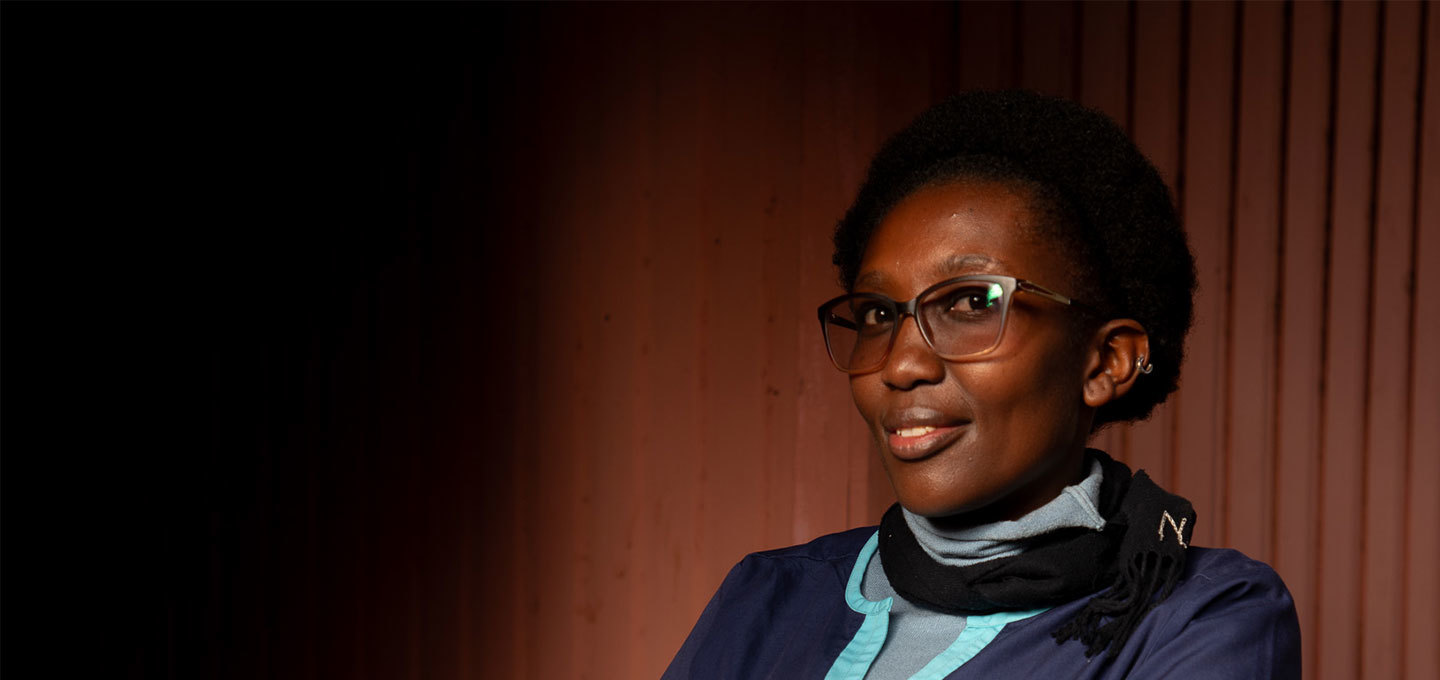
'The aim of my work is to have a healthy community'
Hannah tells us about why her role is so important and the positive changes she is seeing thanks to CHASE Africa-funded work.
We have an antenatal clinic (at our local facility) but you find that not many women come here. Most of them are living in vast areas. They don’t even have transport, especially in this region. There has been a long duration of drought, so economically they are not able to come to the clinic.
It is a challenge when a mother has 10 children with a few months age gap or a year. Coming to the facility, which is far when they have other kids, it is not possible.
So we must go and offer those services in the community. We have to leave Big Life Foundation’s HQ at 8am at the latest because we go to vast areas because there the sun gets too hot, so we have to go early. The previous day we have to pack all the commodities we need: family planning commodities, essential drugs and immunisations. We come and pack everything on the motorbike, then we go. Mostly the clinics are held in a church.

Hannah (in the blue uniform) with a Nutritionist at a Backpack Nurse clinic
We have different locations. So maybe you can go for an hour or two hours before you reach the destination. The terrain is a challenge when going to remote areas, especially during raining seasons whereby motorcycles become hardly rideable. During the clinic we have clients that come for immunisation, family planning, those who come for minor illnesses. We see over a hundred people usually. We finish most often at six pm. The earliest can be at four or five pm.
It makes a lot of change, doing the Backpack Nurse clinic. Even just talking to that person health wise makes a lot of impact. The person could not have gotten that advice if you did not go there.
There is some acceptance of family planning from men because we changed our language to talk about spacing children. Spacing is the key word.
We tell them: you can use contraception for three months, monthly, yearly, and when you want to have kids just come back. You can have 10 children if you want to, but we recommend you leave two to three years before having another child, and it is working. So even themselves they are bringing the women for family planning information and services. They say, ‘Shall we choose three years? Or do we opt for two to four years?’ Then we explain to them, sharing the negatives, the positives and what to expect. So it is changing lives.
There is still stigma in this place around HIV and there are many people who are HIV positive. It is not easy, but we explain to them HIV is a viral disease. We have seen change because now there are even some men who come for voluntary HIV testing. Mothers are also coming for voluntary testing, as we have pregnant or breastfeeding mums who are HIV positive.

Joan, former Community Health Programme Assistant Big Life Foundation, leads a men's dialogue
Now, we don’t have defaulters (people who refuse, delay, or discontinue treatment) because of our Community Health Workers. They will liaise with the defaulters, so now we have a healthy generation. It is a process, you must talk to them. The community, they become your friends, then they will say, the only place I have refuge is with the Community Health Team.
Because of the Community Dialogues for Traditional Birth Attendants (traditional midwives) run by Big Life Foundation, the local Traditional Birth Attendants even bring pregnant women to the facility. If you don’t talk to women and Traditional Birth Attendants, the women only want home deliveries, but you see with the Community Dialogues, it changes.
The women come because we have told them about the dangers of home delivery. There was a mother who tried to give birth at home with a Traditional Birth Attendant. She had been given a cesarean section, then the uterus raptured at home. She died later. So when you have such scenarios, it is important that you tell women and Traditional Birth Attendants the truth. The advantages, the disadvantages and that we are doing this for the future of the communities.
So they bring the mothers here and you are happy because they gave birth at the hospital. It is really helpful because we have reduction of children and mothers dying at home. We are seeing a lot of change.

The Backpack Nurse clinic led by Hannah
I love working with the community. We need to empower the women because if they are empowered, the whole community will be empowered.
